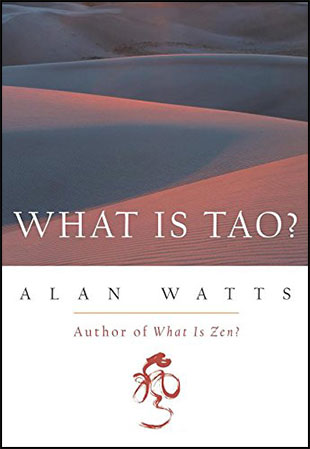Alan Watts (1915-1973) was very taken up with Taoism, the Chinese way of thought and liberation. This paperback consists of talks given at the Esalen Institute in Big Sur, California. Lao-Tzu wrote the Tao Te Ching as a manual of advice for the ruling class. It has endured the test of time and remains a classic.
Watts respects Taoism's emphasis upon the beauty and order of the natural world. He is especially impressed with the concept of a wu wei, "the attribution of not forcing or grasping." In the West, this is a profound teaching given the selfishness and energy of egotism and individualism. Watts uses the analogy of cutting wood: "Some people are in a great hurry to get on with sawing and they try and power right through the piece. But what happens? When you turn the board over you see the back edge of the wood is full of splinters, and you find that you are rather tired as well. Any skilled carpenter will tell you, 'Let the saw do the work, let the teeth do the cutting.' And you find that by going at it quite easily, and just allowing the blade to glide back and forth, the wood is easily cut."
In addition to the principle of wu wei, or "easy does it," Watts discusses Taoism's view of the inseparability of opposites, the search for balance, and the strength that can be found in weakness. The watercourse way, as Taoism has been called, can help us get out of our own way as we live in wonder. This is a very good overview of the Tao.
